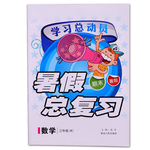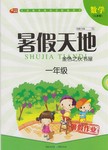题目内容
The handling and delivery of mail has always been a serious business,underpinned (加强,巩固) by the trust of the public in requiring timeliness,safety,and confidentiality (保密性) .After early beginnings using horseback and stagecoach,and although cars and trucks later replaced stagecoaches and wagons,the railway mail service still stands as one of America's most re?sourceful and exciting postal innovations (革新) .This service began in 1832,but grew slowly until the civil war. Then from 1862,by sorting the mail on board moving trains,the post office department was able to decentralize (分散,下放) its operations as railroads began to crisscross (纵横交错的) the nation on a regular basis,and speed up mail delivery. This service lasted until 1974. During peak decades of service,railway mail clerks handled 93% of all nonlocal mail and by 1905 the service had over 12 ,000 employees.
Railway post office trains used a system of mail cranes to exchange mail at stations without stopping. As a train approached the crane,a clerk prepared the catcher arm which would then snatch the incoming mailbag in the blink of an eye. The clerk then booted out the outgoing mailbag. Experienced clerks were considered the elite (精华) of the postal service's employees,and spoke with pride of making the switch at night with nothing but the curves and feel of the track to warn them of an upcoming catch. They also worked under the greatest pressure and their jobs were considered to be exhausting and dangerous. In addition to regular demands of their jobs they could find themselves the victims of train wrecks (毁坏) and robberies.
As successful as it was, "mail-on-the-fly" still had its share of glitches (差错) .If they hoisted (升起) the train's catcher arm too soon,they risked hitting switch targets,telegraph poles or semaphores (信号装置) ,which would rip (扯开) the catcher arm off the train. Too late,and they would miss an exchange.
( ) 5. Which of the following can be inferred from the first paragraph?
A. Cars and trucks later replaced stagecoaches and wagons to deliver mails.
B. There was a high turnover of railway mail clerks.
C. The development of the railroads from 1862 enabled post office department to focus on timeliness.
D. The post office department had more than 12 ,000 clerks to deal with all mail.
( ) 6. The mail crane referred to in the second paragraph is used to .
A. exchange mail at stations without stopping the train
B. exchange the incoming mailbag in the blink of an eye
C. boot out the outgoing mailbag
D. handling and sorting the mail
( ) 7. The underlined expression "mail-on-the-fly" refers to .
A. fast speed B. skillful clerks
C. nonstop system D. mail cranes
( ) 8. What is the main meaning of the passage?
A. How the catcher arm snatched the mailbag without stopping the running train.
B. Timeliness,safety,and confidentiality are very important in mail handling and delivery.
C. The way the mail cranes exchanged mail.
D. Ways improved with time in mail handling and delivery.
CACD
美国邮政的发展以及早期邮寄工具的使用介绍。
5. C推理判断题。本答案也是这一段的中心思想。
6. A细节理解题。第二段的第一句就是答案的出处。
7. C短语猜测题。此处fly应理解为"火车不用停下就处理了需要投递的邮件",因而保证了邮件的快捷。
8. D归纳判断题。

 学期复习一本通学习总动员期末加暑假延边人民出版社系列答案
学期复习一本通学习总动员期末加暑假延边人民出版社系列答案 芒果教辅暑假天地重庆出版社系列答案
芒果教辅暑假天地重庆出版社系列答案